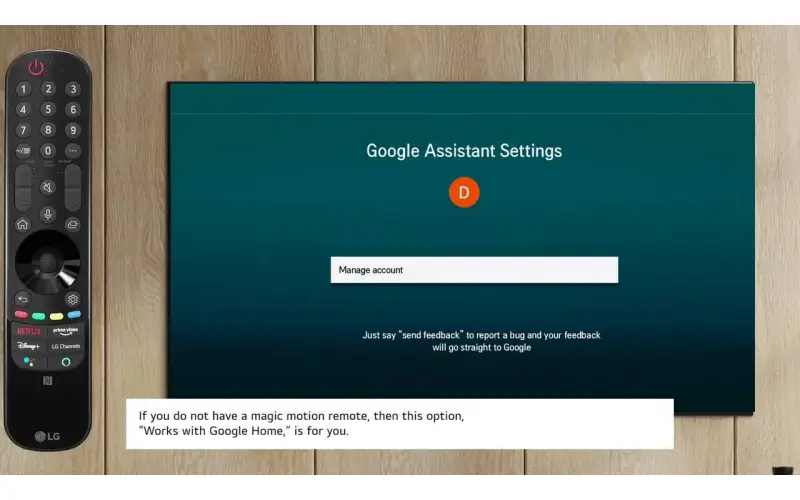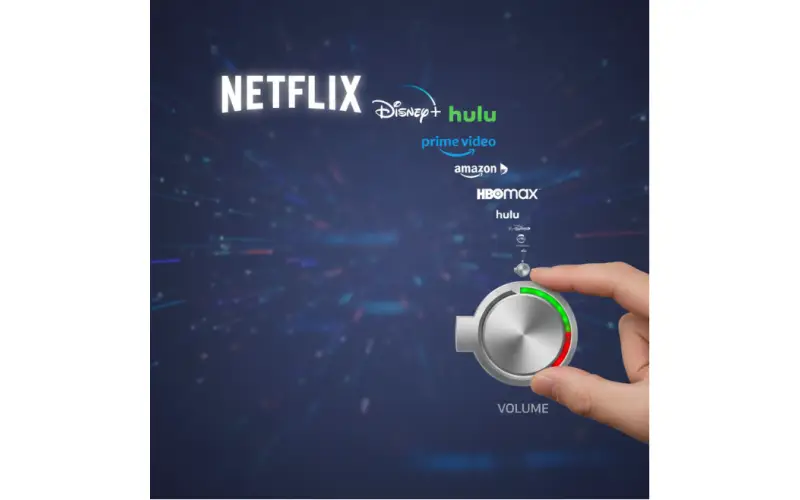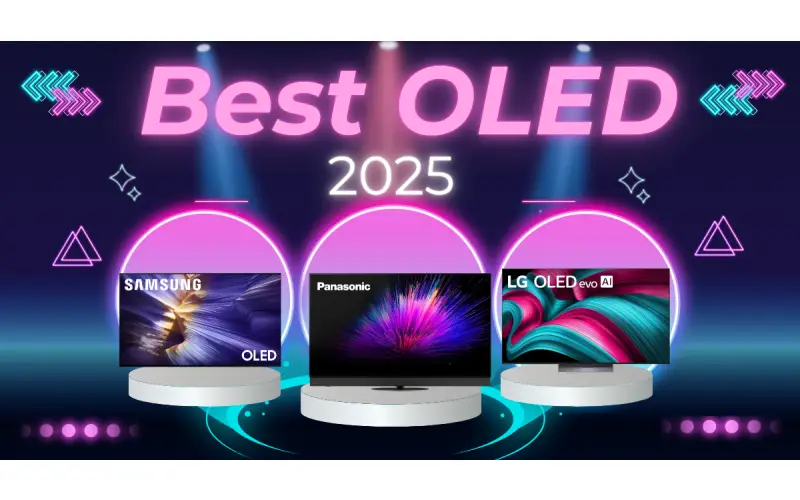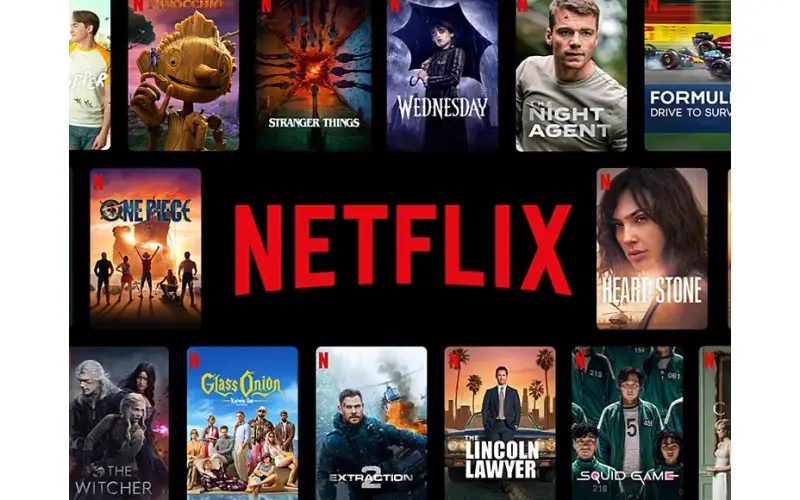By: Dipin Sehdev
Come May 1, 2025, a quiet but impactful change will hit millions of LG smart TVs worldwide: Google Assistant is going away. Users are already seeing in-TV notifications titled “Google Assistant Service Termination,” confirming the feature’s removal. While LG's proprietary voice assistant will still handle basic voice commands via the remote, Google’s powerful AI voice platform — once a headline feature — will be gone.
At first glance, it might seem like a standard platform shuffle — a company dropping support for a third-party feature. But viewed in context with another notable omission from LG’s 2025 TVs — the removal of DTS audio codec support — a broader story begins to unfold. LG appears to be reassessing its longstanding technology partnerships, and the fallout could reshape the smart home experience for many users.
What’s Actually Changing?
Let’s start with what we know. Beginning May 1st, LG TVs — including popular models like the CX, C1, and G1 OLEDs — will no longer support Google Assistant. A notification seen on affected TVs reads:
“Google Assistant will no longer be available on this device starting on May 1, 2025. The voice recognition service provided through the microphone button on the remote control will still be available for use.”
So, yes — voice commands are sticking around. You’ll still be able to ask your LG TV to change the channel, adjust the volume, or search for a title. But those requests will be processed by LG’s in-house voice assistant, not Google Assistant. The deeper integration with your Google-powered smart home, routines, and automations is what’s being stripped out.
What this also means is that voice control will become a siloed feature. It’s no longer part of a broader, cloud-connected ecosystem that includes Google Home, Nest devices, and other Assistant-compatible hardware.
Why Drop Google Assistant Now?
There’s no official explanation from LG or Google as to why this decision is happening. But timing matters — and 2025 is a pivotal year for voice assistants. Google is in the middle of transitioning its Assistant ecosystem to Gemini, the company’s next-generation AI assistant built on large language models. That shift has already led to the discontinuation of several features within Google Assistant, especially those considered underused.
LG may be preemptively unplugging from an ecosystem it views as unstable or transitional. Maintaining support for a waning platform requires engineering resources, especially on older hardware — something that may not be worth the effort if usage was already low.
And that’s a point worth considering: how many people were actually using Google Assistant on their LG TVs?
Was Anyone Really Using It?
It’s hard to get exact numbers, but anecdotal evidence suggests that Assistant on TVs never became a core part of most users’ smart home routines. Sure, the functionality was there: you could ask your TV to control lights, show security cameras, or even fire up a YouTube playlist. But many users likely never got past basic commands like “volume up” or “open Netflix.”
The fact that so many people are only noticing this change now — days before its removal — speaks volumes. If Assistant were a killer feature on LG’s TVs, its removal would have caused an uproar months ago. Instead, Reddit threads and forum posts show a mix of surprise and mild frustration, not outrage.
This isn’t to downplay the impact on power users. For those who had carefully integrated their TVs into a Google Home setup, the change is a real setback. Automations will break. Routines will need reworking. But for the average user? The microphone button will still “work,” just differently.
That’s arguably the most telling detail: LG isn’t disabling voice control entirely. They're simply cutting ties with Google’s assistant while keeping the functionality alive with their own software.
From Google to Microsoft: A Strategic Realignment?
This isn’t happening in a vacuum. Earlier this year, LG announced that future smart TVs would integrate Microsoft’s Copilot AI assistant — the same LLM-powered tech that underpins Windows 11’s newest features. Copilot will offer richer conversational capabilities, deeper content recommendations, and potentially even cross-platform productivity features.
This move suggests a broader strategic realignment. If LG is pulling away from Google and toward Microsoft, that’s more than just a feature swap — it’s a change in ideology.
And that makes the removal of DTS audio support from LG’s 2025 TVs even more relevant. DTS, once considered essential for high-fidelity audio in home theater setups, is gone without much explanation. It’s another long-standing tech standard being tossed aside, possibly in favor of newer, more tightly integrated solutions — Dolby Atmos, for example, is still supported.
Put together, this hints at a company reassessing its partner ecosystem from the ground up. Out with the legacy players; in with partners that better align with LG’s roadmap, particularly in AI, content delivery, and system-level integration.
The Trouble with Software Subtraction
The biggest frustration for users isn’t just that a feature is going away — it’s that it’s going away from devices they already bought.
When people invested in LG’s premium OLED sets, features like Google Assistant were selling points. These TVs weren’t cheap. The removal of functionality, especially without compensation or an optional rollback, feels like a breach of trust to some.
This isn’t just an LG problem. Smart devices across categories — TVs, speakers, thermostats — are increasingly built around services that can change or disappear. Over-the-air updates make devices more capable, but they also allow companies to strip features retroactively. With smartphones, there's often a workaround. On smart TVs, you're at the mercy of the manufacturer.
So What Are Your Options Now?
If you’re affected by this change and still want voice control with Google, all is not lost.
The simplest workaround is to use an external streaming device like the Chromecast with Google TV. It supports Gemini, Google's new assistant, and integrates tightly with the Google Home ecosystem. At around $50–$100, it’s not a small investment, but it restores much of the lost functionality — and arguably does it better.
Another option is to rely on the ThinQ app to control your LG TV through your smartphone. While this doesn’t replace the full Google Assistant integration, it can serve as a backup for essential controls.
You can also remove the ThinQ-Google link proactively via the Google Account Connections page. That way, any automation breakages are minimized when the plug is officially pulled.
The AI Future (and Who’s Allowed In)
LG isn’t the only company undergoing a voice assistant pivot. Samsung is doubling down on Bixby, even as it brings Gemini to Galaxy phones. Google itself is splitting its focus between Assistant and Gemini. Amazon’s Alexa is in the midst of an LLM upgrade to better compete with the new wave of conversational AI.
Voice is no longer about basic commands; it’s about integrating with broader AI systems that can summarize content, recommend shows, book tickets, and even draft emails. That’s the kind of territory Microsoft Copilot is aiming for.
So while it’s easy to mourn the loss of Google Assistant on LG TVs, it may simply be the first domino to fall. We’re entering a new era of AI-powered living room tech — and not every assistant is invited.
What Comes Next for LG Owners?
LG's decision may set a precedent. If Google Assistant can be pulled from older sets, what else might be on the chopping block? Could streaming apps, UI features, or advanced display modes be next?
It’s not all doom and gloom, though. LG continues to support many of its older sets through the ReNew program, offering five years of updates for models dating back to 2021. That’s rare in the TV industry, where two years of updates is the norm.
But it’s also clear that future enhancements — like Microsoft Copilot or any next-gen AI tech — won’t reach these older TVs. They simply don’t have the hardware for it. So if you’re an LG OLED owner with a 2020 or 2021 model, you’re stuck in a bit of a limbo: still supported, but not upgradable.
Final Thoughts: A Subtle Shift With Loud Implications
The removal of Google Assistant might not break your TV, but it does signal a change in how LG approaches its software partnerships and its place in the smart home ecosystem.
Whether this is a pivot toward a more Microsoft-centric strategy or simply a shedding of underused features remains to be seen. But alongside the quiet death of DTS support, it’s clear LG is charting a new course — one that favors tightly integrated, AI-powered experiences over universal compatibility.
And for users? It’s a reminder that in the age of smart everything, your TV is only as smart as the company backing it.





